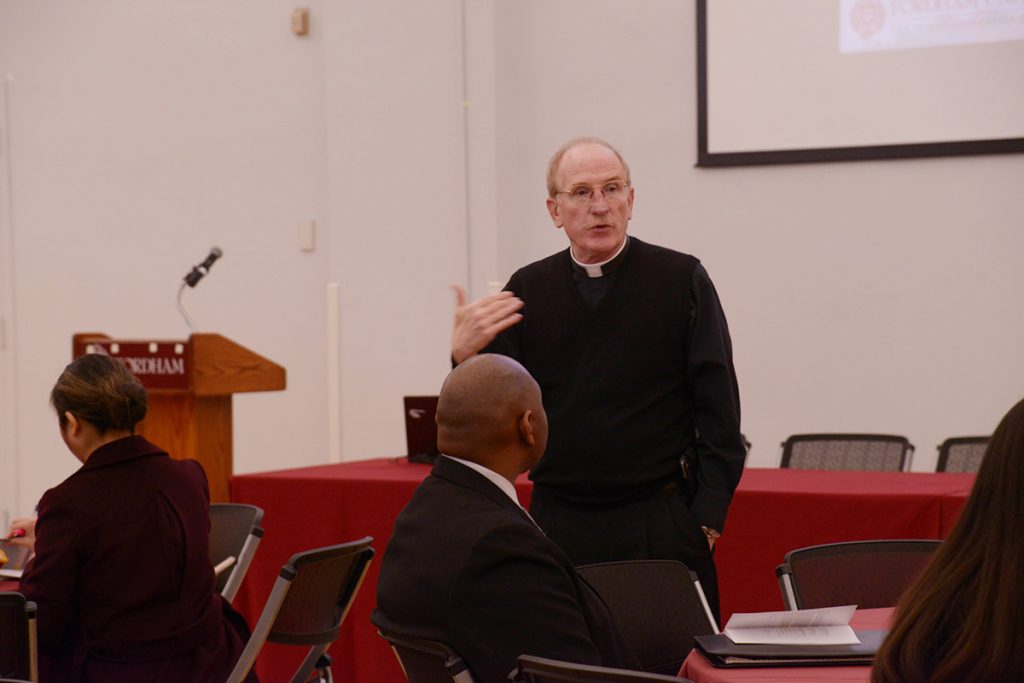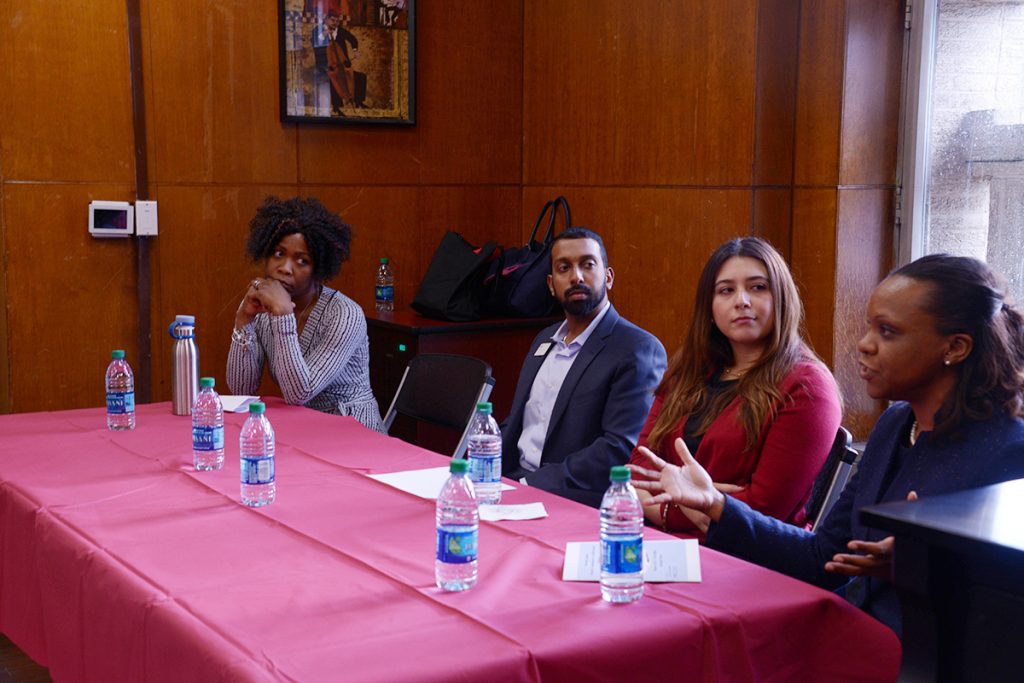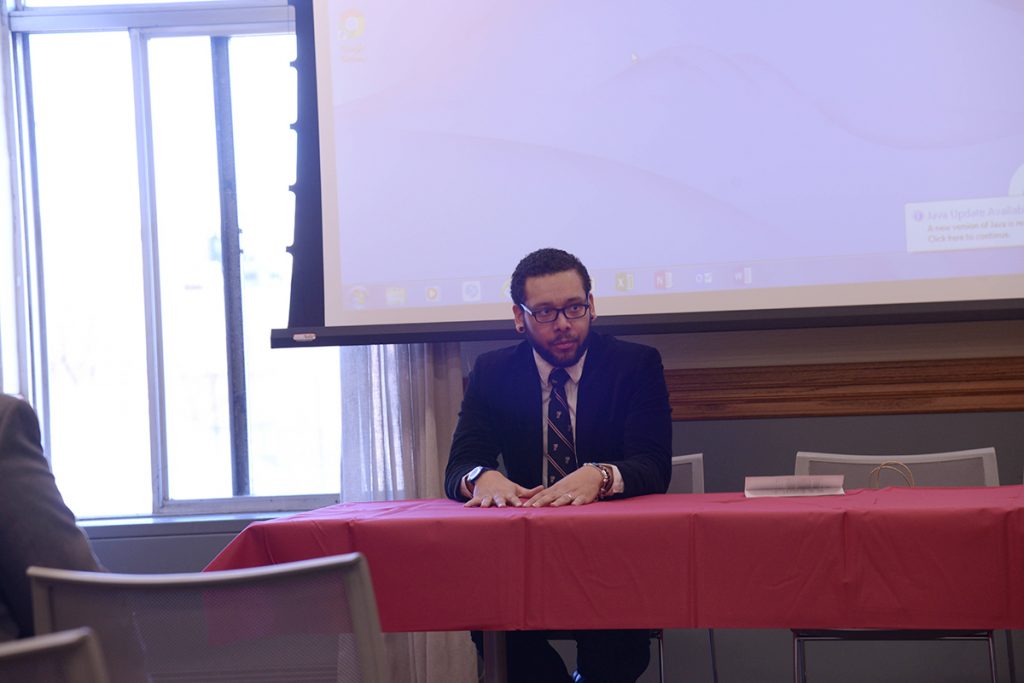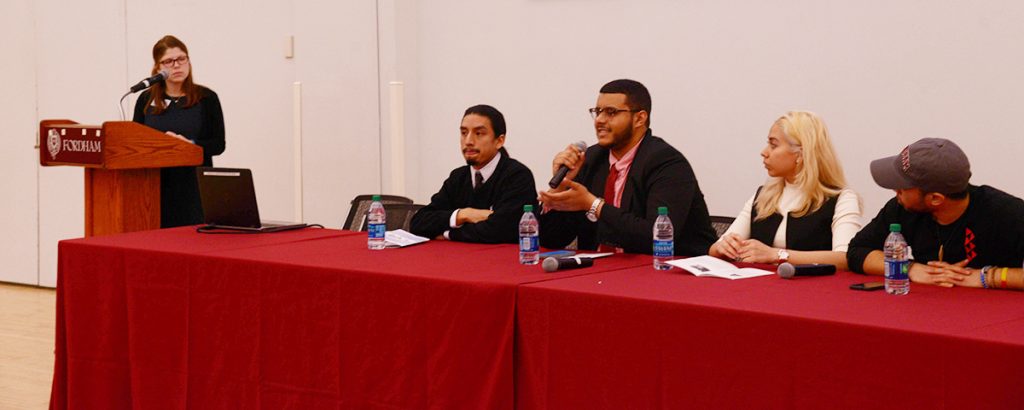How can individuals across various fields find a common ground in the world of work to push diversity and inclusion efforts forward at Fordham and beyond?
That was the 2017 theme for the Fifth Annual Diversity Leadership in A Global Society Conference, which was held on March 8 in the McGinley Center at the Rose Hill campus.
Presented by the Offices of Career Services and Multicultural Affairs, the conference aimed to help participants recognize themselves as allies in creating a welcoming, safe and inclusive environment for individuals of different races, ethnicities, religions, genders, sexual orientation, socio-economic status, and political belief systems.

“If you look around the room, this is the future, not only at Fordham but also the future of our country,” said Joseph M. McShane, S.J., president of Fordham, who delivered the welcome remarks.
“For every event of this nature, let’s fill the room, spread the word, and build a strong and supportive effort in which everyone is respected, revered, and loved.”
The conference hosted several workshops about the skillset, tools, experiences, and attitudes that are key to building a diverse and inclusive workforce. Presenters included:
— health professionals from Bronx Lebanon Hospital explaining how residents, social workers, and program development professionals are trained to provide medical services to the Bronx’s culturally diverse community;

— experts from EY, Deloitte, KPMG, and PwC describing best practices for promoting diversity and inclusion, as well as how their companies respectively develop and advance diverse talent; and
— Lauren Click, director of community and public programs at the Bronx Museum of the Arts, sharing how the internationally recognized cultural institution promotes cross-cultural dialogues and diversity through its art exhibitions and programs.
Juan Carlos Matos, assistant dean and director of the office of multicultural affairs, who helped to organize the conference, held an informational session about one of Fordham’s newest alumni groups, Rainbow Rams. Through educational, professional, social, and service events and initiatives, the LGBTQ+ alumni chapter seeks to build meaningful connections between LGBTQ+ alumni, current students, and the University as a whole.
Matos said life after college can be challenging for Fordham LGBTQ+ alumni, who are trying to navigate the job search process and the workplace. In environments with little to no diversity, LGBTQ+ individuals often have to hide parts of their identities in order to feel accepted, he said.
“The optical experience of someone in the workplace impacts people, and it’s meaningful,” said Matos. “Having individuals that can then identify with other individuals with similar identities or similar lived experiences is just as valuable.”

Matos said people of all backgrounds, races, and orientations must commit to making progressive movements toward equity all across the board. They must also stand up when language, behaviors, and attitudes about different groups are problematic, he said.
“In every field, we should have people that have diversity competencies to recognize when something isn’t aligning with diversity inclusion,” he said. “All of us should have the skillset to be able to talk about diversity inclusion beyond the identity that we each have.”
The conference concluded with an alumni panel discussion featuring Ramon Cabral, FCRH ’14, deputy district director at the U.S. House of Representatives; Yesenia Santana, FCRH ’14, a former educator at Harlem HBI and current social work intern at Manhattan Hunter Science High School; Sergio Lora, FCRH ’14, a construction crew leader at Habitat For Humanity West Hawaii; and Michael Soriano, FCRH ’13, a substance abuse counselor at St. Joseph’s Hospital.
Maria Aponte-Gonzalez, diversity initiatives coordinator at Fordham’s Career Services, said the goal was to give students insider perspectives on how to thrive in a multicultural world and work environment after college.
“A lot of students think the word diversity is only for a certain population, and it’s not,” she said. “ It’s about learning how to engage in the community that you want to get a job in. It’s broadening your concept about dealing with the world because you can’t always live in a little box. Eventually, you have to get out of the box.”

